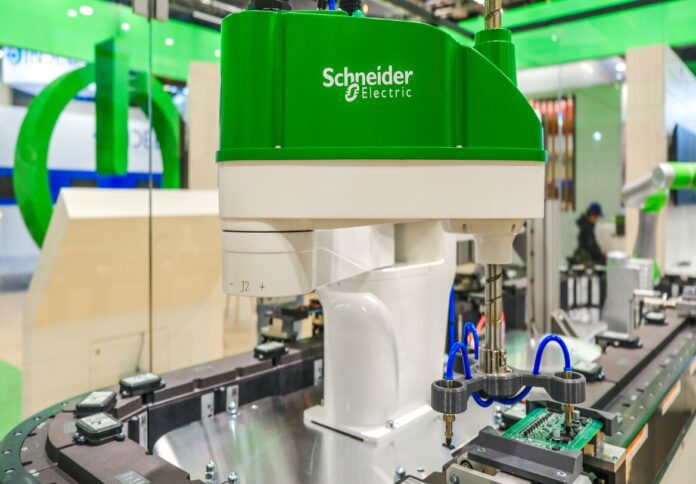
Schneider Electric, a global leader in industrial technology, has unveiled its latest innovation in industrial automation—the ultra-compact Lexium Scara (Selective Compliance Assembly Robot Arm).
This high-speed industrial robot, designed to enhance efficiency and precision, is a key addition to Schneider Electric’s suite of automation solutions, the company said in a media release.
The Lexium Scara is deployable across several industries, including manufacturing sectors like battery production, electronics, and consumer packaging goods.
According to the company, its swift and accurate movements make it ideal for manufacturing and assembly processes such as machine loading and unloading, pick-and-place operations, and material handling.
In particular, the Lexium Scara is 40 per cent smaller than other robots in its category. Despite its compact design, it offers one of the largest work areas available, with a 40 per cent longer z-arm stroke.
This feature allows manufacturers to optimize valuable floor space, minimizing the need for costly facility modifications while maintaining high-speed, precision performance.
The robot is equipped with integrated motors and a built-in controller, simplifying installation and reducing the need for extensive wiring.
For manufacturers, this means less downtime during setup and easier operation, even without specialised robotics expertise.
Its seamless integration into a unified control system, coupled with Schneider’s EcoStruxure Machine Expert Twin digital twin solution, allows for virtual testing prior to deployment, reducing CAPEX and OPEX costs.
The robot’s capacity for multi-robot orchestration enhances flexibility on the production line, supporting manufacturers who need scalable solutions for a variety of automation tasks.
An added benefit for manufacturers is the Lexium Scara’s adaptability to various working conditions. Optional accessory kits can upgrade the robot to IP65 protection, offering cost-efficient durability without the need for an initial higher-cost IP65 version.
The company said this flexibility allows manufacturing facilities to tailor the robot to specific operational environments.
Manufacturers can also benefit from service contracts that offer preventive maintenance, on-site support, remote technical assistance, spare parts management, and extended warranties.



















